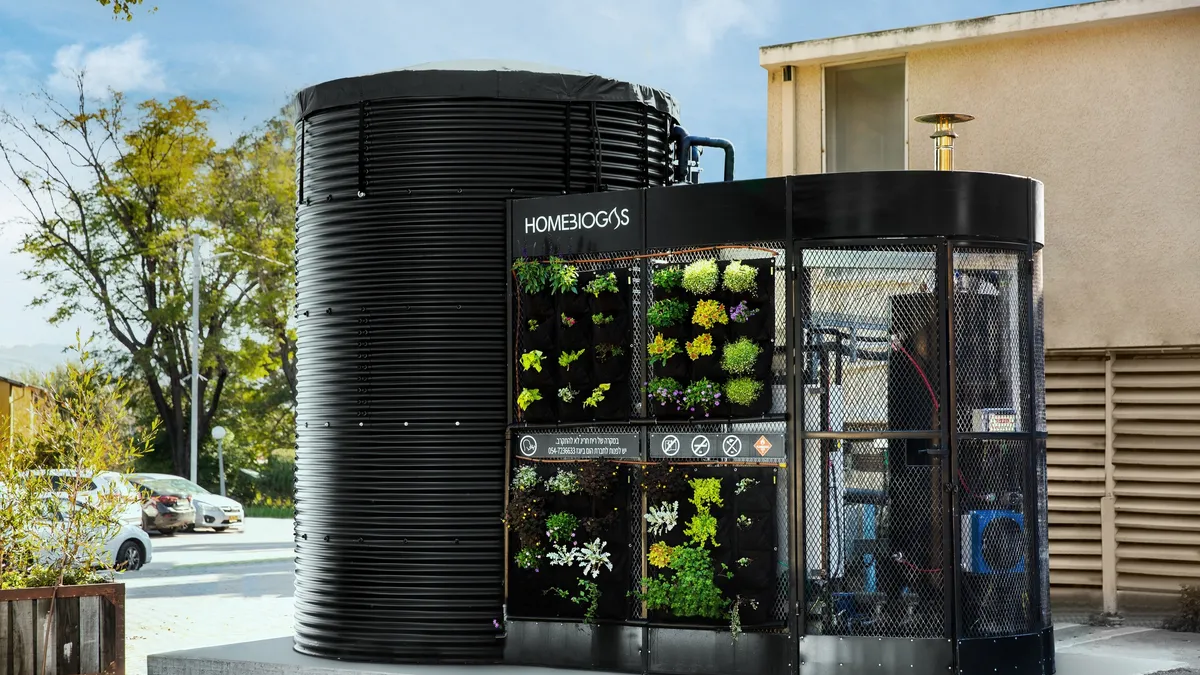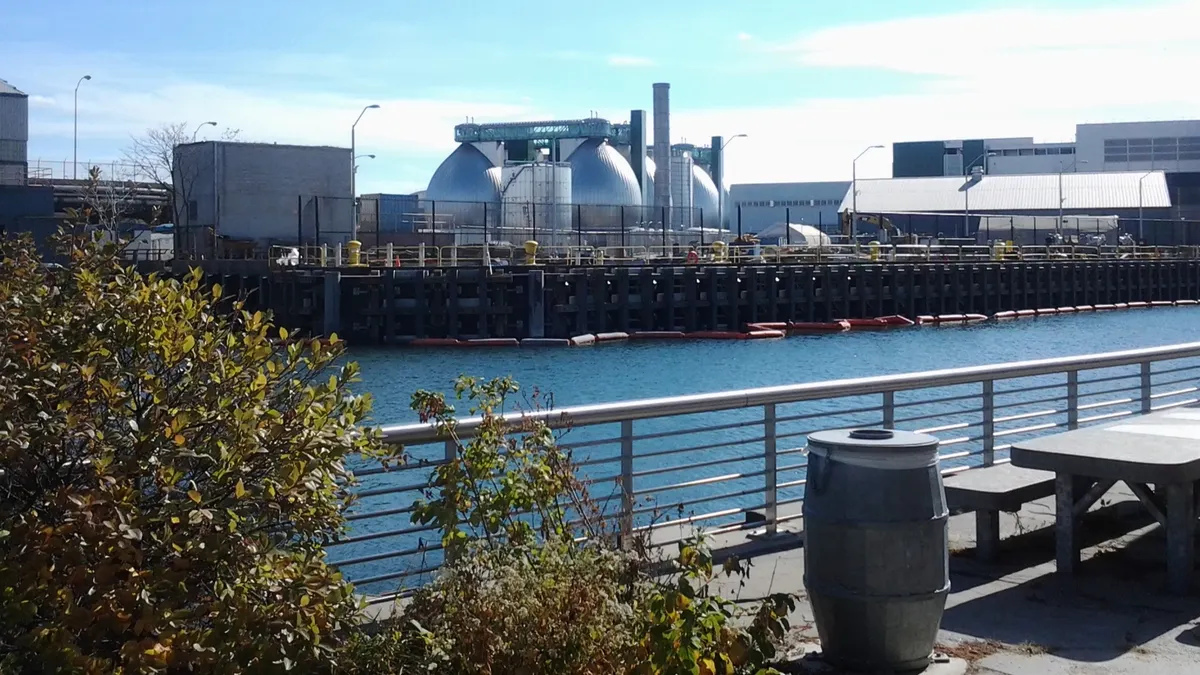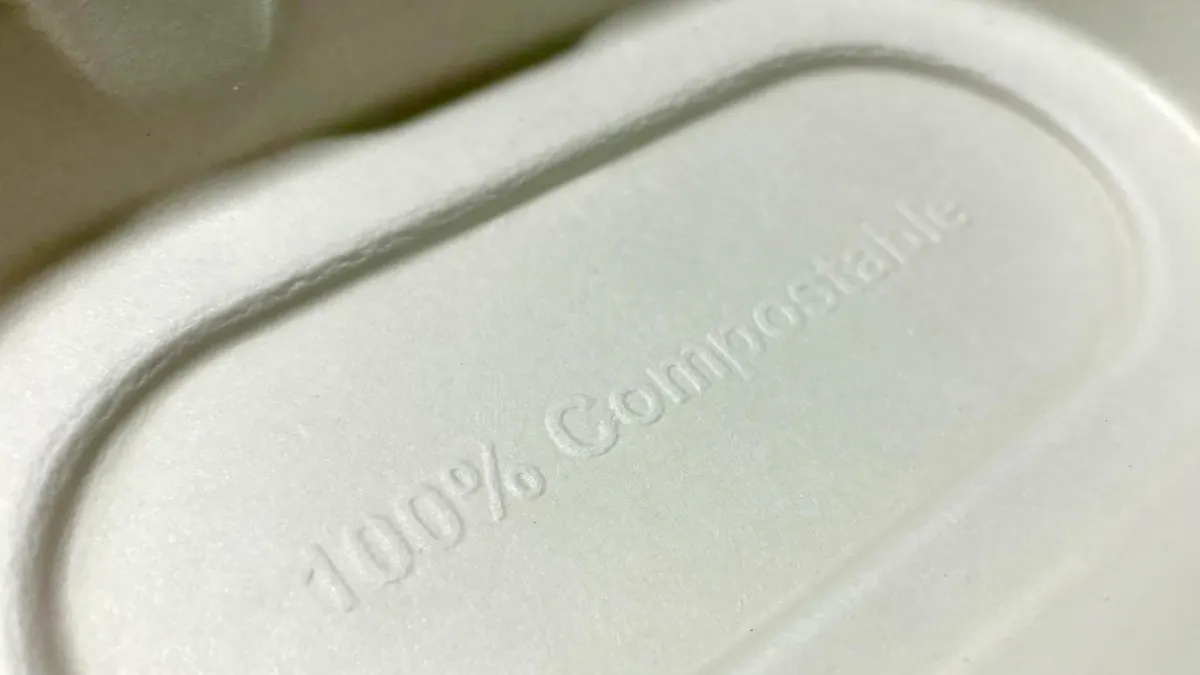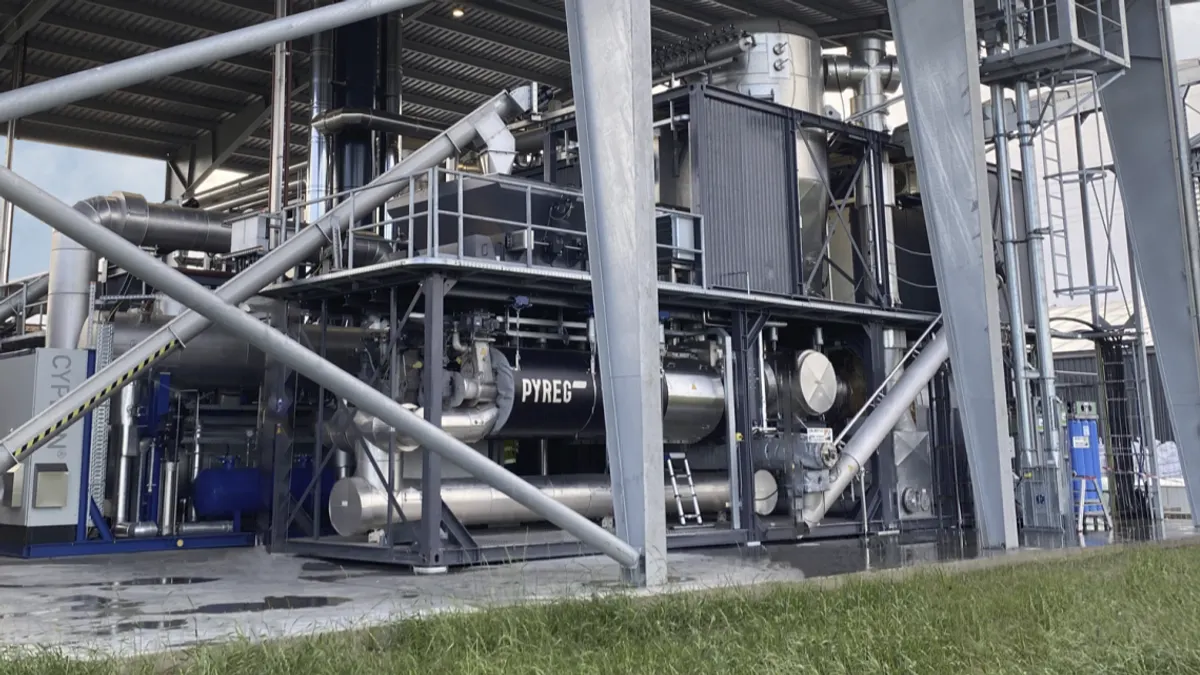Demand for organics recycling continues to grow, driven by increasing urgency around climate change and interest from sustainability-minded investors. Israel-based HomeBiogas is among the latest to see a role for its solution in the U.S. market.
Founded in 2012, the company’s initial focus was on small-scale anaerobic digestion systems that could handle household food scraps and produce biogas for cooking or heating. Over the years, it has rolled out thousands of units in more than 100 countries and grown through investment from entities such as Closed Loop Partners. Last year, HomeBiogas went public in Israel with an approximately $94 million offering. Recently, it became a United Nations supplier to deploy units at refugee camps in multiple African countries, partnered with new technology companies and ramped up its plans for North American expansion — including a new U.S. warehouse to expedite distribution as more states, such as California, launch organics recycling policies.
Last month, the company also released its first environmental, social and governance report. This included detailed accounting of its Scope 1-3 emissions, along with plans to drive further reductions through addressing its energy consumption and vehicle fuel sources.
Waste Dive recently spoke with CEO Oshik Efrati — who sees collection trucks as his biggest competition and aspires to help make HomeBiogas “one of the largest impact companies in the world” — about what’s next.
This interview has been edited for clarity and brevity.
WASTE DIVE: What are your goals for expanding in the U.S. market?
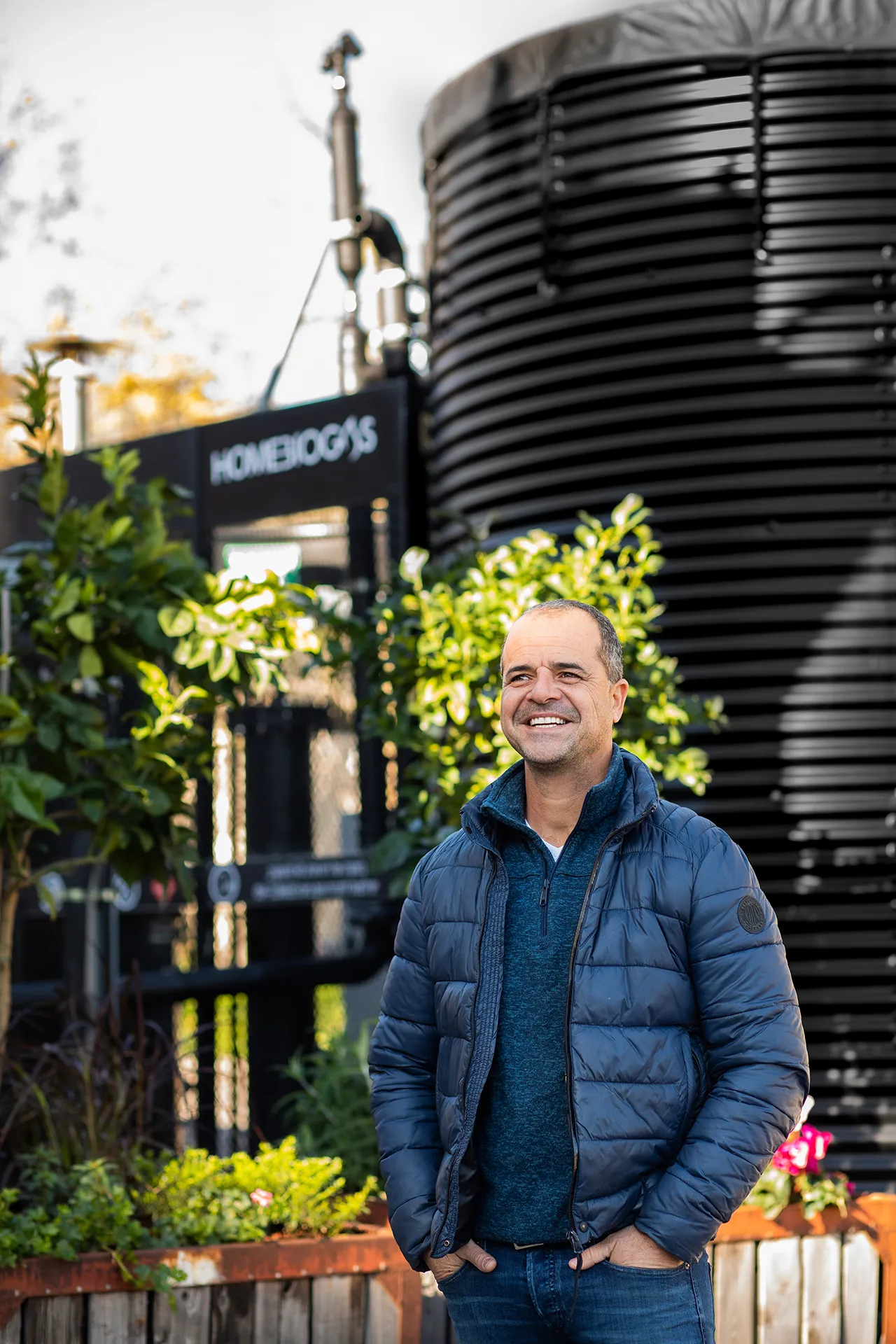
OSHIK EFRATI: We started in developing countries and now we have systems that turn waste into energy for tens of thousands of families in more than 100 countries worldwide. The next stage of the company is actually a huge transition. We're adjusting all our solutions so that they would fit perfectly to the Western house, in restaurants, fast-food chains, hotels, hospitals, industrial kitchens. So we believe that the future of waste management will be treating it on site, turning it into energy that the consumer will use on site.
So it sounds like your goal is to compete with companies that have on-site solutions, as well as companies that may be hauling the material to large-scale compost or anaerobic digestion facilities?
EFRATI: There is a lot of room to disrupt this market, so we are embracing competition. The main goal eventually is to reduce emissions, reduce transportation of waste. The amount of waste is growing year by year, the price of collecting the waste is growing, climate change is getting worse.
Our role in this scenario is to create tools that will bring user-friendly solutions to treat the waste on site. [We have families] that are already treating their waste on site, and they are cooking on the biogas that it's producing. But we also have industrial kitchens, we have hotels, there will be now a military base. Many kinds of customers are now using the solution.
[At a kibbutz in Israel] 800 people are eating together every day in a dining room and we actually installed there our new commercial system that can take up to one ton of food waste a day. So we treat the waste, turn it into energy, they use it to heat the water of the dishwasher. So they save money on waste collection, they save money on energy, and they feel very good that they are reducing emissions. They also use it to educate the kids about how you can create a circular economy, how by technology and innovation you can save money and reduce pollution. So it's both a good story, and ecological and economic.
In thinking about the residential applications in the U.S., is your initial target going to be people who may live in more rural areas and/or those who may already have solar panels, for example, and want to be even more self-sufficient?
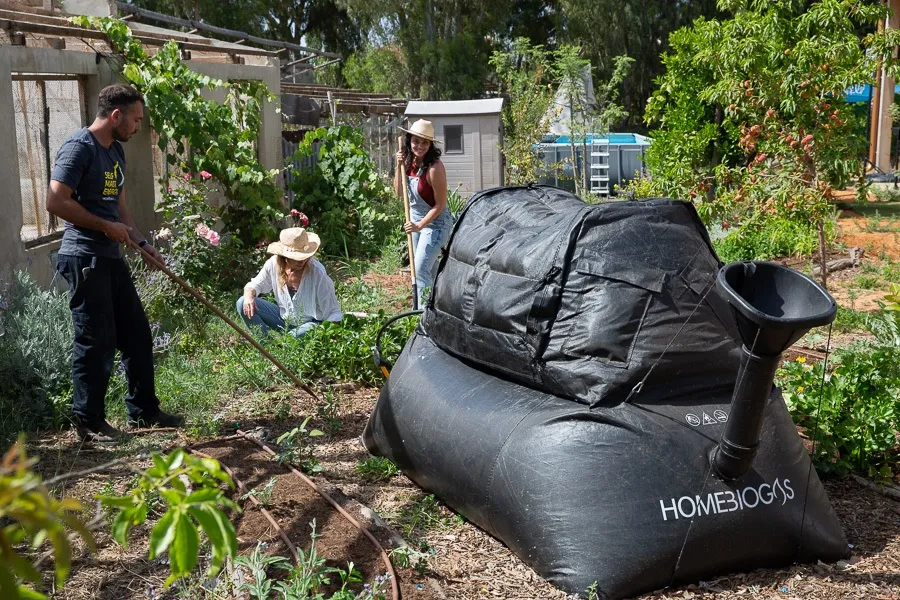
EFRATI: So the starting point is exactly that. Already, we have thousands of users in the US, some of them want to get to a self-sustaining situation. Some of them just want to recycle the waste and turn it into energy. And some of them are off-gridders. We sell those systems online and after less than two weeks you get it to your front door. It's a do-it-yourself kit, it's easy to assemble. There is full support on how to assemble it and connect it.
The next stage is new products that will be fit to advanced houses that will take the waste right from the kitchen grinder to the biogas system and we turn it into hot water that will go back to the house.
We are also preparing to launch our commercial system in the U.S. We already have a few customers. Some of them are multifamily houses, so in the process of construction it will be embedded into the multifamily housing. It will be a very nice case study that I believe will eventually affect all the industry of multifamily houses because they have an interest to reduce the waste, reduce the price of collection and to become more green, reduce the carbon footprint. Also, we are preparing to work with some of the most famous restaurant chains we are already in touch with.
In terms of the business model, it sounds like you’re in growth mode now with potential to sell more of these systems upfront. What is the long-term recurring revenue opportunity for commercial or household customers?
EFRATI: When we sell to private customers it's a one-time buy and then they need to actually buy filters twice a year, to replace the filter that cleans the gas. When we work with business, like B2B, it's a different story. With the business, they need actually a higher level of service and those systems are much more advanced. So we give support. We have a control center for all the systems, we can see all the parameters online, to make sure that they're working. Secondly, we have a team that is coming to visit and make sure that everything is right and safe, according to the regulations, and we make sure that the system is working perfectly 24/7. So in the B2B scenario, we charge for the service.
We’re seeing more state policy drivers in the U.S. to push for organics recycling and biogas production. What do you think would be most helpful in the U.S., from a policy standpoint, to accelerate that market shift?
EFRATI: This market is going through transition. Some states are forbidding to throw organic waste to landfill. It’s creating a lot of opportunities for new solutions, for new technologies. I think the trend is that states will create new regulations that actually reduce landfill [volumes], and eventually will reduce carbon emissions. In this new situation, there are many new opportunities for technologies to treat waste on site.
Most of us are just throwing the waste to the trash bin and then continuing our life, but once you understand the route where the waste is going you actually start to understand the impact of segregating waste. It’s easy to treat, you can do it in your house — whether you buy HomeBiogas, whether you do compost, whether you do it yourself — but everyone can make an impact. Everyone can reduce emissions and I encourage you to do so.



